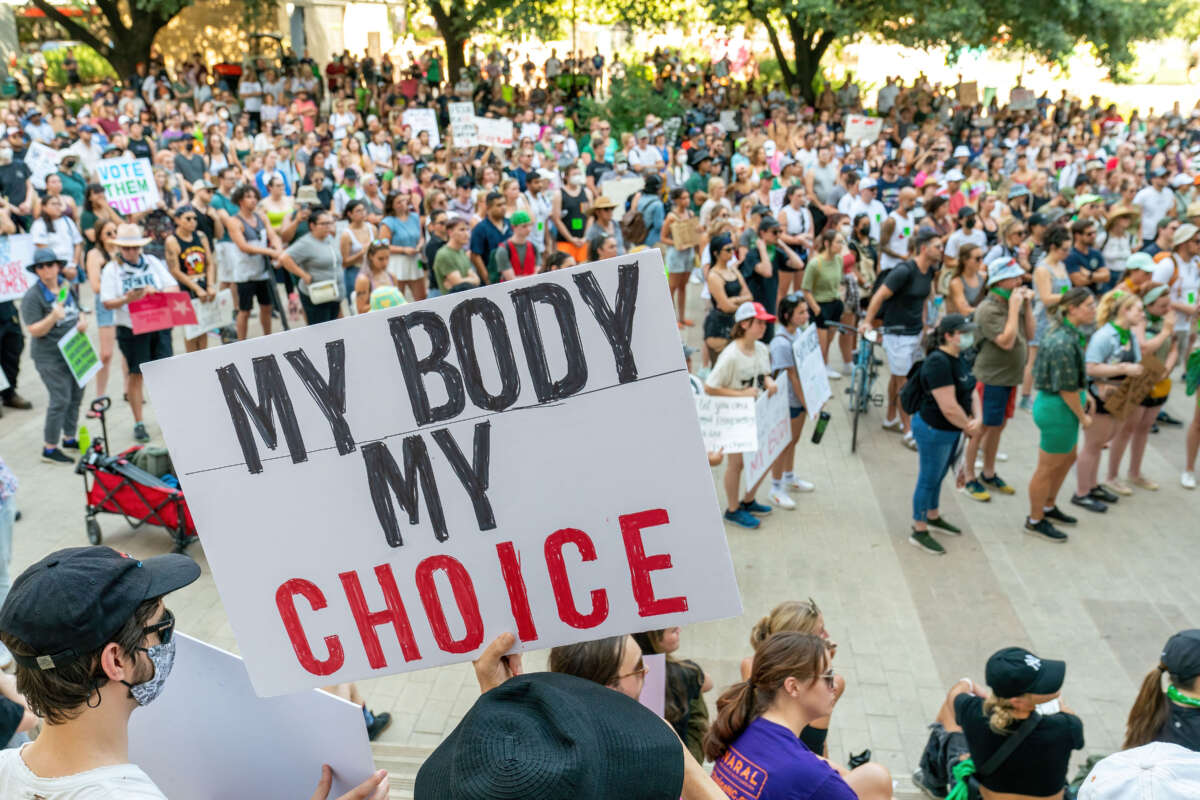Lizelle Gonzalez, a Texas woman who self-managed an abortion in 2022, is suing local Starr County prosecutors for more than $1 million in damages for “deprivation of liberty, reputational harm, public humiliation, distress, pain, and suffering.” Gonzalez was arrested and charged with murder after a hospital reported her to the district attorney’s office following her visit seeking medical care related to bleeding.
“[T]he fallout from Defendants’ illegal and unconstitutional actions has forever changed the Plaintiff’s life,” the lawsuit says. “[The] humiliation of a highly publicized indictment and arrest [has] permanently affected her standing in the community.”
Gonzalez’s arrest occurred prior to the overturning of Roe v. Wade in June 2022. However, even if her arrest had happened after Dobbs reversed the constitutional right to an abortion, it would still be unlawful since pregnant individuals cannot be criminally prosecuted for their own abortions under state law.
“We have no doubt that the Starr County District Attorney, and his office, were well-aware that Texas law exempts a woman who receives an abortion, by any means, from a murder charge and yet chose to pursue an unjust and unconstitutional indictment,” Gonzalez’s attorneys told CNN. “Such a flagrant violation of Ms. Gonzalez’s basic civil rights cannot be regarded as a mere ‘mistake.’”
According to a Pregnancy Justice report, Gonzalez is one of nearly 1,400 people from 2006 to June 2022 who experienced pregnancy-related criminalization across the country. The report defines pregnancy criminalization as any situation in which someone is arrested because of their pregnancy or where the terms of a person’s bail, sentencing, or probation are made more severe because they became pregnant after being charged with an unrelated crime. In most cases, pregnancy serves as a pivotal factor, indicating that if not for the pregnancy, the punitive actions taken against the pregnant person would not have occurred.
“Pregnant people are increasingly targeted for criminalization in ways that do not exist for people who are not pregnant, with dire consequences for themselves and their families,” Lourdes A. Rivera, president of Pregnancy Justice, said in a statement.
An October report from If/When/How also found that between 2000 and 2020, 61 people, including seven minors, were criminally investigated or arrested for allegedly ending their own pregnancies or helping someone else to do so. “The United States is in the midst of a completely avoidable human rights crisis,” the If/When/How report says.
Pregnancy criminalization disproportionately affects Black, Brown and Indigenous communities; also immigrants, low-income populations and sex workers. According to the Pregnancy Justice report, Black people accounted for 18.2 percent of arrests related to pregnancy criminalization, while low-income individuals comprised nearly 85 percent of such cases.
“Trends in criminalization of self-managed abortion are likely to mimic the patterns of marginalization that exist in our society on the basis of race, class, immigration status, and other markers,” the If/When/How report explains. “[The] criminalization is about controlling certain groups of people, not behaviors.”
In most cases, people have been criminalized by police and prosecutors under statutes that were never originally designed or sanctioned for cases of self-managed abortion. These statutes encompass a range of charges such as those pertaining to fetal remains, child abuse, felony assault or assault of an unborn child, practicing medicine without a license, and homicide or murder.
“The array of charge types used leaves people who self-manage abortions in a murky state of legal risk, especially when there is no applicable statute prohibiting self-managed abortion in the vast majority of states,” the If/When/How report explains.
Notably earlier this year, Brittany Watts, an Ohio woman accused of self-managing an abortion after experiencing a home miscarriage in September, was prosecuted under Ohio’s vague abuse-of-corpse statute. Watts was reported to authorities by a nurse during a hospital visit. While a grand jury refused to indict her in January, In Our Own Voice president and CEO Regina Davis Moss said that Watts’s case illustrates “how Black women and their bodies face legal threats simply for existing.”
“Her story is one that is becoming alarmingly common: in states with abortion restrictions, Black women, girls, and gender-expansive people are being surveilled, arrested, prosecuted and punished for pregnancy loss,” Davis Moss said.
As exemplified by the Watts case, the If/When/How report found that police were frequently informed by trusted individuals like healthcare professionals, social workers, or acquaintances, even though there are no laws mandating care providers to notify the police regarding self-managed abortions.
“We must challenge the systems that collude to criminalize pregnant people, ensure that neither poverty, gender, nor race is criminalized, and ensure everyone can get the care they need and live full, thriving lives without fear, stigma, or punishment,” Monica Raye Simpson, executive director of SisterSong Women of Color Reproductive Justice Collective, said in a September press release.
